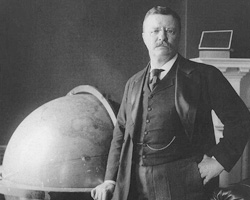“The very basis of our government being the opinion of the people, the very first object should be to keep that right; and were it left to me to decide whether we should have a government without newspapers, or newspapers without a government, I should not hesitate a moment to prefer the latter.”
—Thomas Jefferson, 1787
“The smarter the journalists are, the better off society is. [For] to a degree, people read the press to inform themselves-and the better the teacher, the better the student body.”
— Investor Warren Buffett
- Immigration and industry booms
- Journalists question the big businesses‘ factory conditions
- President Theodore Roosevelt called these journalists muckrakers
- Yellow journalism in full swing
- Guglielmo Marconi sent the first radio transmission across the Atlantic
- Investigative reporting and war correspondents overtook the muckrakers of the 1900s
- Newspapers were a source of activism for political parties and for social equality
- Groundwork was laid for radio to make a huge impact on journalism and society in the 1920’s
- Newsreels were being developed during this time period
- Rise of consumer culture and mass entertainment (by way of radio and movies)
- Changes in gender roles and sexual mores
- Prohibition, wild speculation about the stock market, and unhealthy corporate structures lead to the Great Crash
- Jazz and tabloid journalism created a new age of sensationalism which focused on: sex and crime




Leave a response